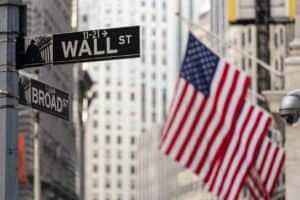 The majority of buy-side traders in the US are not supportive of new exchange venues entering the equity landscape, with some agreeing that new entrants should achieve a minimum market share before qualifying for protected quote status.
The majority of buy-side traders in the US are not supportive of new exchange venues entering the equity landscape, with some agreeing that new entrants should achieve a minimum market share before qualifying for protected quote status.
Thirteen exchanges are currently in operation in the US, with three new equities exchanges preparing to fully launch over the course of this year, including Members Exchange (MEMX), Miami International Holdings’ MIAX Equities, and Silicon Valley-backed Long-Term Stock Exchange (LTSE).
A new report from Greenwich Associates has revealed that 39% of buy-side traders do no support the launches as it would exacerbate fragmentation, and a further 20% are also not in favour of the development as there are already too many exchanges in operation. As new exchanges enter the market, brokers and exchange operators are required to connect to the new venue or risk increased routing costs, despite a new exchange potentially having limited liquidity.
Just 20% of traders were supportive of the exchanges looking to launch in 2020, but 22% argued they should have a minimum market share to qualify for protected quote status under Reg NMS’s Order Protection Rule.
“Fragmentation has been a major complaint among buy-side traders for many years, but we must also recognise that a key ethos of US markets is to favour and encourage competition,” said the report, authored by Shane Swanson, senior analyst at Greenwich Associates. “Innovators should have every right to challenge the status quo, but at the same time, exchanges should not automatically qualify to receive flow just because they have passed a regulatory hurdle.”
Greenwich Associates added to address the issues with fragmentation, the Order Protection Rule could be revised by forcing exchanges to achieve a specific share of the market before they qualify for protected quote status. Although, depending on the minimum requirements installed, anywhere from three to eight current exchanges would lose protected status.
“Even in the absence of the Order Protection Rule, traders will still seek out the best-priced liquidity unless they are fully prepared to justify to their bosses, their clients and their regulators why they chose to ignore it,” Swanson commented.